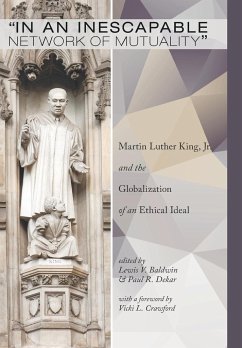Clarence B. Jones, close King advisor and draft speechwriter, has done much to reinforce a conservative hijacking of King's image with the publication of his controversial books What Would Martin Say? (2008) and Behind the Dream (2011). King emerges from Jones's books not as a prophetic radical who attacked systemic racial injustice, economic exploitation, and wars of aggression, but as a fiercely conservative figure who would oppose affirmative action and illegal immigration. The Domestication of Martin Luther King Jr. offers a critique of Jones's work and the larger effort on the part of right-wing conservatives to make King a useful symbol, or the sacred aura, in a protracted campaign to promote their own agenda for America. This work establishes the need to rethink King's legacy of ideas and activism and its importance for our society and culture.








